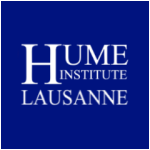Welcome to the PhD in Defence Studies Programme. This Programme connects students who wish to study Defence and Security, whether that is from an historical perspective or at the leading edge of current thinking about how the Digital Age is transforming capability and method. The Programme spans from the highest levels of policy and strategy at national and alliance level down to the use of force at the operational and higher tactical levels of conflict. It considers and integrates modern military hard power and the rapidly developing field of ‘sub-threshold’ or ‘hybrid’ campaigning using all the available levers of power below armed conflict. The Programme offers the opportunity to study in detail any of the major constituent elements of contemporary Defence and Security and the relationship between them, including: national security and military intelligence; force development, programming and acquisition; technology, research and development; logistics and medical support; national resilience; and ethical and legal implications. The Programme will meet almost any research ambition in the study of how nations confront each other and consider the use of force. The Programme has exceptional ability to connect students to the widest possible field of experts drawn from politics, government officials, military leaders, industry and academia in order to support their particular study. We look forward very much to helping you fulfil your study objectives to the very best of our combined ability.
General Sir Richard Barrons served as Commander Joint Forces Command, one of the six ‘Chiefs of Staff’ leading the UK Armed Forces, 2013-2016. He was responsible for 23,000 people worldwide and a budget of £4.3Bn, delivering intelligence, Special Forces, operational command and control, surveillance, reconnaissance and information systems and communications, operational logistics, medical support, and advanced education and training across the Armed Forces. He joined the Army via Sandhurst in 1977 and read Philosophy, Politics and Economics at The Queen’s College, Oxford en route to becoming an artillery officer. His military career included the last decade of the Cold War and leadership from Captain to General on military operations in Bosnia, Kosovo, Northern Ireland, Iraq and Afghanistan – often as part of US-led coalitions and in NATO. As a Lieutenant General serving in the MoD he oversaw all UK military operations, including support to the 2012 Olympics. He is a Distinguished Fellow at RUSI, and a Visiting Senior Fellow at LSE IDEAS. His work today includes Managing Partner of Wychwood Partners, providing government and senior board-level geo-strategic insight and advice on digital risk and opportunity, particularly cyber resilience. He is Co-Chairman of Universal Defence & Security Solutions, applying the expertise of former Royal Navy, Army, Royal Air Force and MoD Civil Service personnel at all levels to work around the world. He advises widely on senior leadership, defence and security, lecturing regularly on defence policy, strategy, and especially the transformation of armed forces through Digital Age technology.
All Hume candidates participate in a Research Methodology course. Alongside this they work with their research supervisors in online tutorials. These are further accompanied by peer workshops, annual colloquia and twice-yearly mock vivas.
Through the PhD in Defence Studies, we are seeking to develop research topics within or across the following areas:
• Senior Political, Official and Military Leadership in Defence and Security
• The History of Armed Conflict
• National and International Defence, Security and Military Policy and Strategy
• Military Capability development and acquisition, including transformation for the Digital Age
• Military Operational Art in the Digital Age.
• Peacekeeping, Peace Support, Stabilization and Conflict Resolution
• Hybrid capability and campaigning
• National Resilience in Confrontation and Conflict.
• Defence and Security Sector Reform and Capacity Building.
• National Military Logistics and Medical Support
When the Programme Director signals assent, a Research Supervisor is appointed for the duration of the doctoral studies.
Duration for the full-time programme is normally 3 -4 four years with a fee of £12,000 per year;
Duration for the part-time programme is normally 5 -6 years for a fee of £6,000 per year.


